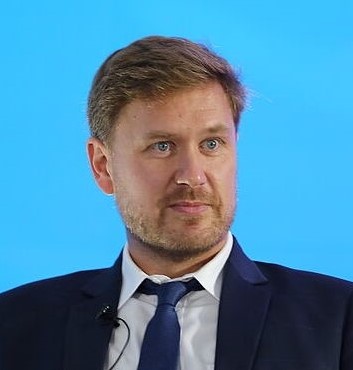
Les notes de recherche 2023
The EU and the Israel-Hamas War, George N. Tzogopoulos
This essay attempts to offer an overview of how the EU responded to the Israel-Hamas war in its first weeks. In so doing, it explains that the initial unequivocal support for Israel after the terrorist attack of 7 October 2023 was followed by a more nuanced stance that focused attention on the Palestinian drama. It subsequently demonstrates why disagreements among member states came to the forefront in a phase during which Israel was waging war to eradicate Hamas at huge cost to numerous Palestinians living in the Gaza Strip. The essay discusses several European priorities amid hostilities and argues that the general analysis of the EU's stance cannot ignore the complexity of the Israel-Palestinian conflict as a whole.
Nature Restoration Law: A Review of the Council’s General Approach and of What Remains of the Commission’s Ambitious Proposal, Marie Müller
The policy brief gives an overview of the recent movements inside the EU institutions in regard to the Commission’s Proposal for the Nature Restoration Law. Since then, the Proposal has undergone the ordinary legislative procedure. The Law just survived the trilogue negotiations of the Parliament and the Council, and is, therefore, one step closer to its entry into force. Nevertheless, the Commission’s ambitions have been partially lost over the process, and it is not clear yet if the Law, in its current stage, will still be able to fulfill its purpose. Namely to reverse biodiversity loss by coordinated and stringent restoration measures.
Le pacte fiscal européen : retour aux fondamentaux, Laurent Baechler
Le Pacte de Stabilité et de Croissance (PSC) adopté en 1997 établit les règles fiscales que les pays membres de la zone euro doivent respecter afin d’éviter que de trop grandes divergences en matière de déficit ou d’endettement public ne débouchent sur une déstabilisation contagieuse de la zone. Ces règles sont essentiellement un seuil de 3% du PIB pour le déficit public et un seuil de 60% du PIB pour la dette publique, que les pays membres doivent s’engager à respecter. Elles ont été suspendues lors du déclenchement de la crise de la Covid en mars 2020 (en application des règles elles-mêmes, en cas de circonstances exceptionnelles qui empêchent le respect des seuils), suspension prolongée en raison de l’impact de la guerre en Ukraine sur les budgets des pays membres. Il est question de les réintroduire à partir de janvier 2024, mais les conditions de leur application ont été profondément bouleversées par l’impact des quelque quatre années écoulées sur la situation budgétaire des pays concernés. Cette note a pour objet de présenter les propositions de réformes concernant ces règles fiscales, ainsi que les débats qu’elles suscitent).

The Niger Crisis and the Perils of a New Cold War Descending on Africa, Christian Manahl
West Africa has experienced a series of military coups and growing Russian influence, mostly through the Wagner security group, with Niger being the latest and perhaps most critical example, as it is the cornerstone of the European Union’s security strategy in the Sahel and a crucial country in terms of managing trans-Saharan migration flows. In the context Russia’s full-scale invasion of Ukraine, Russian expansionism in the Sahel could turn the subregion into a new frontline of the hybrid geopolitical conflict between Russia and the West. The way the crisis in Niger is resolved will be indicative of how this dynamic plays out.
Croatia’s European Success Story, Kristijan Ležaić
On 1st of July this year, Croatia, the youngest European Union member state celebrates 10 years of membership in the EU. In the first decennial anniversary of membership, this small Mediterranean Country gradually achieved remarkable success in crossing the various stages of integration and on 1st January 2023 gained membership of both the Eurozone and Schengen area, something that was never achieved in the history of the EU, to attain these two important milestones on the same day. Due to its dedication and achievements, Croatia can be seen as a true European success story as it has come a long way from a war torn Country fighting for independence in the 90s, to a poster child of European integration only 30 years later. Today, Croatia is one of the 15 Countries in the world, which are at the same time members of the EU, NATO, Schengen and Eurozone.
Looking Back on the Beyond Growth Conference - Building Pathways Towards a Post-Growth European Economy, Loris Petrini
This article provides a brief synthesis of the Beyond Growth conference to highlight the diffusion of post-growth narratives within EU institutions. This landmark multi-stakeholder event, born as a cross-party initiative of 20 MEPs from five political groups, was held in the European Parliament in May 2023. The debates gathered scholars, members of civil society and policymakers around a common plea to ensure socio-ecological prosperity by shifting away from GDP growth. In the context of the European Green Deal, it sought to openly challenge conventional policymaking and build pathways to offer a good life for all within planetary boundaries.
Making the Impossible Possible - Shifting the Overton Window, Arne Ellerbeck
Effective climate action and policy is currently not politically possible, as politicians face strong resistance from various societal groups and in some cases even have to fear for their re-election when adopting ambitious legislation. In order to achieve the 2030 targets and bring the planet on a trajectory on which we can limit climate change to 1.5°C this problem needs to be addressed. This can be conceptualised as the need to shift the Overton Window, which describes what is politically possible at a given moment in time. For this purpose two options exist, the proposed solutions are more attractive and the sentiment in the general public becomes more favourable. Both levers can be addressed through a diverse coalition consisting of actors ranging from companies to youth activists. Together these groups can reduce the hostility in the discourse around climate action, develop a common understanding and attractive solutions. The unique character of this coalition has the potential to elicit changes in how climate action is thought about in the general public and among political decision-makers. A crucial piece to this coalition is the youth climate movement which possess a unique credibility and legitimacy. However, this movement is highly complex, vast and does not exist as a single actor. In order to overcome these challenges, this policy brief offers a potential definition of what the climate youth movement is, based on a generational aspect and the psychological/sociological concept “opinion/value group”. Furthermore, a coarse categorisation of youth groups is presented based on the size and the level which the group is aiming to exert their impact. The objective is to deliver some initial guidance to support other actors in finding suitable partners among youth groups, with the aim to collaborate in shifting the Overton Window.

Extremism in Digital Spheres: Can European Union Directives Curb It?, Katharina Sigwald
Violent extremist attacks have risen over the last decade, while algorithms on Internet platforms have played a vital role in enforcing extremist ideologies and worldviews. The European Union has issued offline regulations to combat extremism on the Internet, like the Radicalisation Awareness Network (RAN), the EU’s Security Union strategy 2020-2025, and the 2020 Counter-Terrorism Agenda. European Council conclusions for online providers include the awaited Digital Services Act package (DSA/DMA) which aims to create a safer digital environment for users, as well as the introduction of the European Centre for Algorithmic Transparency (2023), seeking to facilitate the implementation of the DSA/DMA. The Digital Services Act package is perceived as an important step in the right direction, though it has been greeted with some scepticism concerning its impact and applicability.
Perspectives on the Security of Central Europe One Year After the Beginning of the War,
Ryszard Piasecki
The Russian war of aggression against Ukraine can be a chance for the Europeans to build their strategic value for NATO on their home turf. Today, Central Europe is naturally the centre point of Europe’s security. Only armies developed in close cooperation with NATO guarantee security. In the case of Poland, the ongoing senseless conflict with the EU - including Germany - contradicts the Polish raison d’état. Seen from the perspective of Central Europe, a common European defence and the transatlantic alliance are both necessary for their security.
Connecting Europe’s Schools and Pupils: A Flagship Initiative for the European Political Community, Florent Marciacq
The invasion of Ukraine by the Russian Federation last year has imposed new geopolitical realities on the European continent. It has shattered illusions that hard security challenges can be offset by soft power and market integration alone, exposed key vulnerabilities in European security, bolstered transatlantic cooperation, hit European economies and reshaped the political geography of EU enlargement. The war has put European nations to a massive test, and it is fair to say that unity has prevailed at the most critical moment. Yet, the war has not extinguished key divergences on strategic issues. These continue to run deep, behind the front of European unity. To make sure that countries in Europe board the same boat in their crossing of geopolitical storms, a European political community (EPC) was established in Prague on 6 October 2022. The 40+ participating states, gathered on this occasion, identified 7 priorities, one of which was… youth cooperation. An ambitious flagship initiative focusing on school connectivity and pupils’ mobility would give the EPC substance, identity and the strategic depth required to address the European challenges that are ready to surge under still waters.

China and the War in Ukraine, George N. Tzogopoulos
China’s stance in the Ukraine conflict has generated lively debate. The country stresses its neutrality, but the West doubts its sincere motivations. China does not agree with the policy of sanctions against Russia and looks at the war from the prism of its own interests. In so doing, it strives to achieve a balance between the maintenance of good relations with Russia and the preservation of a degree of cooperation with the USA and the EU. It is also proposing some solutions to end hostilities which reflect its own strategic thinking. A good understanding of this strategic thinking will perhaps help Western policymakers set realistic goals in what to expect from the Chinese government as long as the war in Ukraine persists.
The Dragon and the Bear Unlimited - Should we worry about the China-Russia Relationship?,
Christian R. Manahl
The partnership between the world’s two major authoritarian regimes is reason for serious concern, but it is the consequence, not the cause, of tensions that have been building up for years already. Russia’s full-scale invasion of Ukraine a year ago marks a turning point in international relations, the end of the post-Cold War era and possibly the beginning of a new Cold War between the democratic West and an authoritarian East which is bound in an alliance of convenience. However, Russia’s military setbacks, the invasion’s impact on the global economy, and the risk of a nuclear escalation run counter to China’s interests. Beijing sticks to Moscow out of geopolitical opportunism, but it may use its influence to mitigate the risk of an escalation and perhaps bring an opening for a diplomatic settlement, following Xi Jinping’s trip to Moscow earlier this year. The outcome of this China’s “peace initiative” will depend essentially on Ukraine’s own assessment of its chances for an outright military victory or of the risks of protracted hostilities that would exhaust its resources.

The Justice Challenges of the EU Energy Trilemma, Rachel Guyet
Energy policies in Europe are embedded in the three dimensions of the so-called energy trilemma, for which the World Energy Council publishes an index every year. The current energy crisis has impacted all three dimensions of the trilemma putting at the core of the European strategies the security of supply, including the accelerated deployment of renewable energies, and the issue of affordability. The paper examines whether the emergency measures taken meet the conditions of just transition put forward in the European Green Deal.
Le populisme à l'épreuve du pouvoir, Mohamed Kerrou
A l’épreuve du pouvoir, le populisme tunisien incarné par le Président Kais Saied s’est avéré velléitaire et sans consistance au niveau de la gouvernance.
Pour y remédier, il importe d’instaurer un climat de confiance et d’éviter la confrontation avec la Centrale syndicale qui est le pilier de la société civile.
The War in Ukraine and Europe's Choices, George N. Tzogopoulos
The war in Ukraine is challenging the international order. The EU has responded by getting closer to the US within NATO. The allies are attemtping to support Kyiv and stop the advancement of Russian military forces. The EU has provided critical support to the Ukrainian people and has made impressive steps to guarantee its energy security and maintain its resilience. However, perspectives for peace are rather poor. The hard reality is leading the EU to evaluate different scenarios, although it cannot be the protagonist in the conflict. In a changing world, the EU needs to place more emphasis on its strategic autonomy and be more flexible in welcoming Ukraine to its family.
|